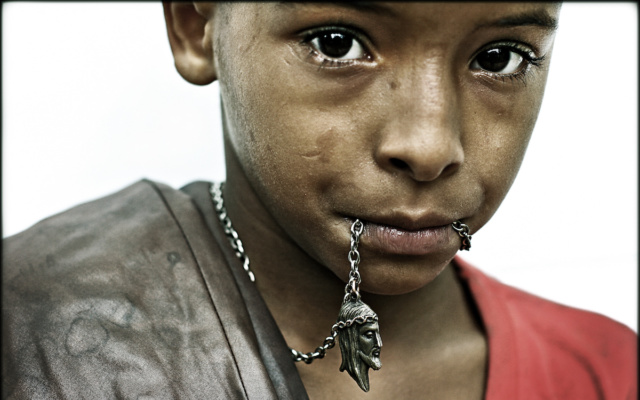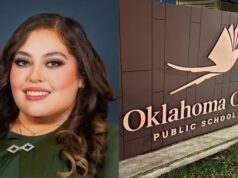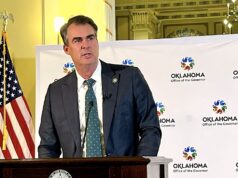Our Monday editorials are written on Sunday. Hence, this examination of SB 81 was crafted on Easter.
That bill (embedded below), authored by Sen. Ron Sharp (R-Shawnee) and Rep. Jadine Nolan (R-Sand Springs), would lower the minimum grade level from sixth to third for certain mandatory and optional school suspensions.
Functionally, that means Oklahoma schools would be required to suspend fifth-, fourth- and third-graders who “attempt to cause physical bodily injury” to any school employee or volunteer. Such a suspension would last for at least the current semester and at most the entire subsequent semester, too. (Local boards can set their own policies to handle these situations differently if they choose.)
The bill would also mean third- through fifth-graders could face suspension for “violation of a school regulation.” They could also be suspended for possessing Bud Lite, a dangerous weapon or a controlled substance within 2,000 feet of school property.
As SB 81 could be heard on the House floor in the immediate days after Easter, the most infamous bracelets of the 1990s beg the question: How many third graders would Jesus suspend?
An ineffective way to help children
While we have a number of theological contributors who could answer this question more biblically than our editorial board, trying to unpack the potential effects of SB 81 remains important.
Children with disruptive, injurious or violent tendencies are often the victims of abuse themselves. Their pain, trauma and anger — when combined with additional stress factors and other children — can easily result in emotional outbursts, physical aggression and problematic behavior.
But while Oklahoma’s struggling school systems face a great deal of pressure and lack dynamic mental health resources, banishing a distressed 8- or 9-year-old from school seems like an ineffective way to help that child.
Instead, mandatory suspensions for elementary school troublemakers would inevitably cause more youth to spend their days unsupervised. Such scenarios would be exacerbated in the state’s poorest communities.
Even though No Child Left Behind was a roundly panned federal education initiative, SB 81 would be a blunt rebuke of even the message behind NCLB’s name.
‘The one who is least among you’
Depending on their preferred translations, perhaps Christian legislators might find guidance in Luke 9:46-48 as they consider SB 81. From the New International Version:
46 An argument started among the disciples as to which of them would be the greatest. 47 Jesus, knowing their thoughts, took a little child and had him stand beside him. 48 Then he said to them, “Whoever welcomes this little child in my name welcomes me; and whoever welcomes me welcomes the one who sent me. For it is the one who is least among you all who is the greatest.”
While the practical desires of school administrators may well trump the moral metaphors of Jesus Christ, legislators remain in a better position than schools to take the high ground and demand that violent children receive help, not isolation and punishment.
Should they do so, perhaps lawmakers would pass more bills aimed at supporting troubled elementary students.
SB 81, on the other hand, would only make it easier for schools to disregard the least among us.
(Clarification: This post was updated at 9:40 a.m. Tuesday, April 18, to clarify that local boards can set their own policies on how they handle suspendable offenses.)
